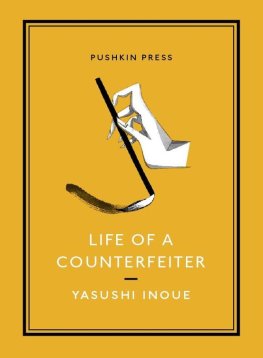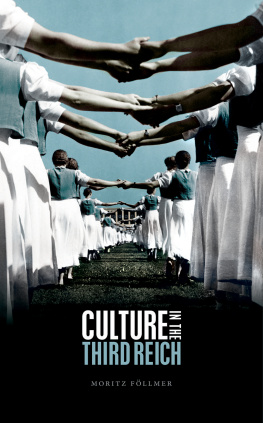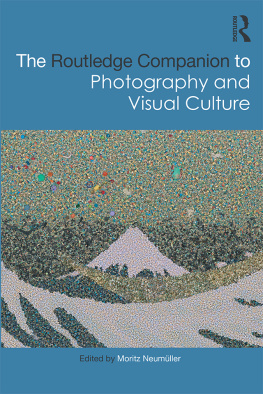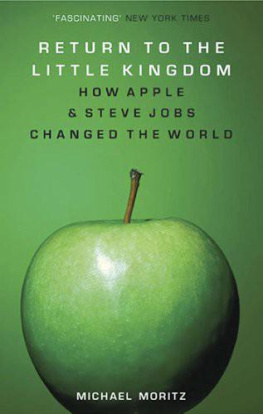Moritz Nachtstern - Counterfeiter
Here you can read online Moritz Nachtstern - Counterfeiter full text of the book (entire story) in english for free. Download pdf and epub, get meaning, cover and reviews about this ebook. publisher: Lyons Press, genre: Detective and thriller. Description of the work, (preface) as well as reviews are available. Best literature library LitArk.com created for fans of good reading and offers a wide selection of genres:
Romance novel
Science fiction
Adventure
Detective
Science
History
Home and family
Prose
Art
Politics
Computer
Non-fiction
Religion
Business
Children
Humor
Choose a favorite category and find really read worthwhile books. Enjoy immersion in the world of imagination, feel the emotions of the characters or learn something new for yourself, make an fascinating discovery.

- Book:Counterfeiter
- Author:
- Publisher:Lyons Press
- Genre:
- Rating:5 / 5
- Favourites:Add to favourites
- Your mark:
- 100
- 1
- 2
- 3
- 4
- 5
Counterfeiter: summary, description and annotation
We offer to read an annotation, description, summary or preface (depends on what the author of the book "Counterfeiter" wrote himself). If you haven't found the necessary information about the book — write in the comments, we will try to find it.
Counterfeiter — read online for free the complete book (whole text) full work
Below is the text of the book, divided by pages. System saving the place of the last page read, allows you to conveniently read the book "Counterfeiter" online for free, without having to search again every time where you left off. Put a bookmark, and you can go to the page where you finished reading at any time.
Font size:
Interval:
Bookmark:

To buy books in quantity for corporate use or incentives, call (800) 962-0973 or e-mail premiums@GlobePequot.com.
Originally published in Norwegian as Falskmynter i Sachsenhausen
This translation has been published with the financial support of NORLA
First published in Great Britain in 2008 by Osprey Publishing
Norwegian text Spartacus forlag AS 2006
Norwegian edition published by Spartacus forlag AS, Norway
Published by agreement with Hagen Agency AS, Norway
English translation Osprey Publishing 2008
First Lyons Press edition 2012
ALL RIGHTS RESERVED. No part of this book may be reproduced or transmitted in any form by any means, electronic or mechanical, including photocopying and recording, or by any information storage and retrieval system, except as may be expressly permitted in writing from the publisher. Requests for permission should be addressed to Globe Pequot Press, Attn: Rights and Permissions Department, P.O. Box 480, Guilford, CT 06437.
Lyons Press is an imprint of Globe Pequot Press.
Every attempt has been made by the publisher to secure the appropriate permissions for materials reproduced in this book. If there has been any oversight we will be happy to rectify the situation and a written submission should be made to the publishers.
The views and opinions expressed in this book and the context in which the image of the crowd of survivors at Ebensee (66290) is used do not necessarily reflect the views or policy of, nor imply approval or endorsement by, the United States Holocaust Memorial Museum.
Text design: Sheryl P. Kober
Layout artist: Justin Marciano
Library of Congress Cataloging-in-Publication Data is available on file.
ISBN 978-0-7627-7988-8
Printed in the United States of America
10 9 8 7 6 5 4 3 2 1
F OREWORD
T HIS STORY WAS WRITTEN DOWN BEFORE I WAS BORN . M Y PARENTS SAT together in the little apartment on Brugata in Oslo, the same apartment where my father had been arrested a few years before. He spoke, she wrote.
When I was born in July 1946, barely a year had passed since his own rebirth: He had survived the Holocaust. Not long after he came home he experienced great happiness. He met Rachel and found love. Together they created a home and a family.
He was my storyteller. It was he who introduced me to the trolls and to Askeladd (Ash-lada Norwegian fairytale figure) and who transformed me into the Princess in the Blue Mountain. He sang about Lillebror (little brother) and the Teddy-bj rn (teddy bear), and taught me a German childrens song, which I have kept among my treasured songs. I know that he was very proud of being the father of a small child, and he threw himself completely into the role of being a papa (daddy), which was unusual for fathers in those days.
When my brother was born four years later, I believe his happiness was complete. He had the family he had been dreaming about, but which he never thought he would have.
When I think back, he seemed to have managed to hide his past well, and when I was a child it was impossible for me to notice the changes in his disposition or behavior. Nevertheless, I remember the look on his face when for the first time I consciously discovered the prison number on his arm. I can still see the pain lying like a dark shadow across his eyes and mouth, when I asked him what it was.
Later I would get to know Papas story well, with his nightmares time and time again and fear in the otherwise warm and calm eyes.
Outwardly Papa was a lively person who enjoyed playing games and having fun. His laughter was so contagious that one could not help but laugh with him. At parties he was often the storyteller, and he loved to entertain with songs and stories. He would get up and sing Mein Vater Spiel Viol (My Father Plays the Violin, in Yiddish), while he swung the bow toward his imaginary violin with his whole body.
His body language was strong, and when he ate it was so fast that it was as though he was afraid that the food would disappear into thin air. He sat at the table as if ready to run, rarely leaning back and at ease during meals. Everything was done in a hurry. He somehow wanted to embrace it all, not to miss out on anything.
I can recall how much time it took for my parents to prepare the food for Pesach (Passover). They worked side by side in the kitchen: He chopped the liver for the entree; she cooked the chicken and soup with matzo balls and made the worlds most delicious gefilte fish. Papa loved tasty foods, and he could go on and on savoring the favor itself.
I suppose we were, in a way, a happy little family, but black clouds always prevented our lives from being perfect. My mother and her family had fled to Sweden, when the threatened arrests of the Norwegian Jews became a fact. Her father was arrested and perished in the Germans gas chambers in Auschwitz.
Such experiences cannot be erased.
Before the war and until 1940, my mother was a member of the Communist Youth Organization, and she was always an active presence at their meetings. In 1942, after all the male Jews had been arrested, she dyed her coal-black hair red and moved among the Norwegians under the alias of Vesla (Little One). With the help of her communist friends she managed to get the rest of her family into hiding. Ten days later, at the start of December 1942, they crossed the border to Sweden and freedom.
My home was marked by the events of the war. I do not think we spoke much about it, but the war somehow shadowed our everyday life with a kind of nervous and indefinable disquiet.
Nevertheless, Papa was able to talk about his experiences, and when he did it was usually with a touch of humor. That is, he spoke little about the prison ship SS Donau and Auschwitz concentration campthe most difficult time, when death was a threat every day. He preferred to talk about life in Sachsenhausen, which is described in this book. He always came back to the jocular tone among the prisoners, which helped them to get through the days.
His worst memories were revealed while he slept, and they manifested themselves in nightmares and violent weeping. One nightmare occurred again and again: the young man who stood in front of him in the tattooing line and begged to change places to postpone it a little, because he was so afraid of the needles. They were both typographers, and when the Germans needed printers for their counterfeit operation in Sachsenhausen, Papas number was the last to be called up. Thus, Papa survived.
He never saw the young man again.
He tried to hide it in front of us children, but I can still hear his cries that woke us up at night: I am so sorry! I am so sorry! I am alive, I am alive ... but you are not!
On the bookshelves of my childhood home there was a large selection of war literature, among them Hitlers Mein Kampf. Papa used these books for reference.
When I was twelve years old I removed one of these books from the shelf. It was the first time I found out something about the horrors Papa had gone through. He found me crying in my room, hidden halfway under the bedcovers with the book. I can recall how he held me and let me cry until I had no more tears left. Then we talked for hours.
Papa died as he had lived, quickly and without warning. We spoke together on the phone the night before. He was a bit stuffed up, he said. I asked him to take care of himself. The next morning he was gone.
S IDSEL N ACHTSTERN
N TTERY , A PRIL 2006
By Bjarte Bruland
Next pageFont size:
Interval:
Bookmark:
Similar books «Counterfeiter»
Look at similar books to Counterfeiter. We have selected literature similar in name and meaning in the hope of providing readers with more options to find new, interesting, not yet read works.
Discussion, reviews of the book Counterfeiter and just readers' own opinions. Leave your comments, write what you think about the work, its meaning or the main characters. Specify what exactly you liked and what you didn't like, and why you think so.










